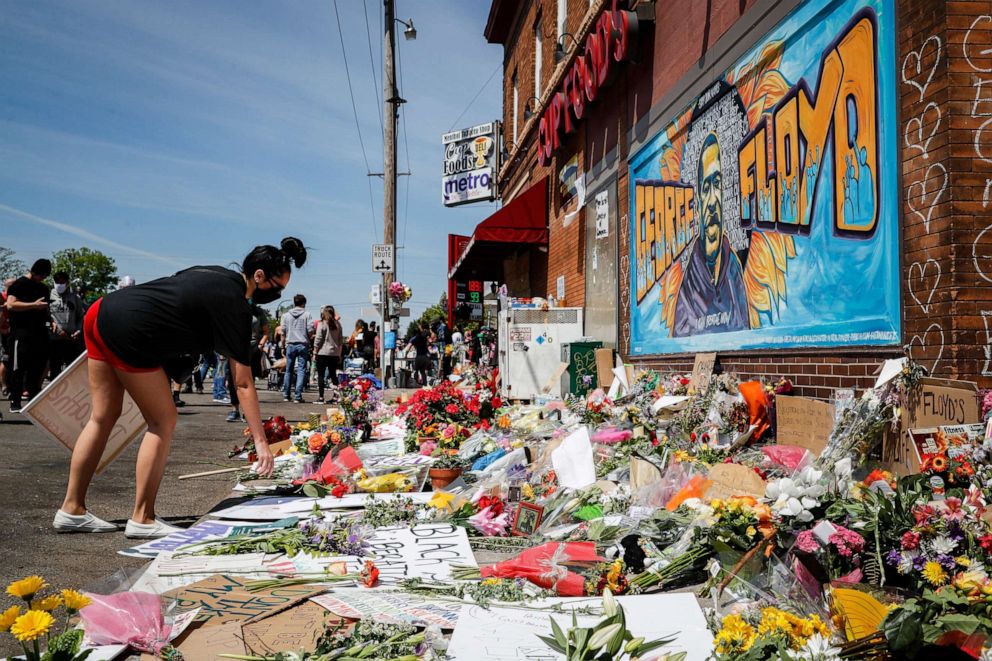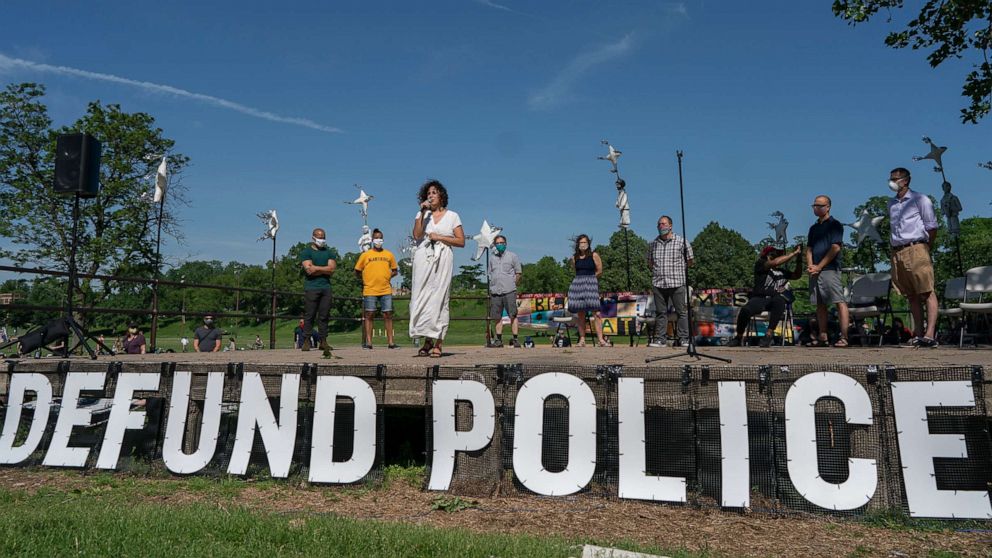Ballot question asks Minneapolis voters to consider replacing police department
The future of the Minneapolis Police Department may be decided on Tuesday.
A ballot measure is asking voters if the city should amend its charter to replace the police department with the Department of Public Safety, which would take a "comprehensive public health approach."
The new department could include police officers, but there wouldn't be a required minimum number to employ. The MPD had 588 officers as of mid-October and was authorized for up to 888, according to The Associated Press.
The charter amendment would replace the police chief with a commissioner nominated by the mayor and approved by the City Council. By state law, the charter amendment would go into effect 30 days after it passes.
"It's a vote for us to all reimagine public safety and to move away from the type of systems that have not produced safety for all communities," said Rashad Robinson, a spokesperson for Color of Change PAC, which organized in support of the ballot measure.

City Council member Jeremiah Ellison told ABC News that the police department would become a division of law enforcement within the Department of Public Safety.
"Question two is about are we locked into our current system of public safety, this police only model," he said. "Are we locked into this model, that's what voting no does, or do we have an ability to transform public safety into the future? That's what a yes does."
While supporters of the charter amendment connect it to the calls for police reform that followed George Floyd's killing last year, opponents, including those who want reform, have said the measure is ill-defined and crafted without enough community input.
"We skipped over a lot of steps that would normally happen when you're bringing about a change of this magnitude, and people are being sold a proposal that has no plan attached to it," said Nekima Levy Armstrong, a Minneapolis civil rights attorney and activist. "There's no certainty of what this new department will actually look like, how it will function and whether it will actually address the underlying public safety issues."
Minneapolis Police Chief Medaria Arradondo similarly criticized the charter amendment at a press conference on Wednesday.
"It will not eliminate tragic incidents between police and community from ever occurring in our city," he said. "It will not suddenly change the culture of the police department that has been in existence for 155 years."
Voters appear divided. North Minneapolis resident Tallaya Byers said that she supports the public safety charter amendment because she feels current police officers aren't trained to handle certain situations, like those involving people who use drugs or have a mental illness.
"It will bring an element to where they can identify and analyze situations, to where people are not seen as such a threat," Byers said. "For me, it's going to help the police officers do their job, analyze situations, have a conversation. It's that simple."
Teto Wilson, a North Minneapolis resident who owns a barbershop, said that he plans to vote against the ballot measure because proponents haven't elaborated on how it will affect people of color.
"I think policing needs to be radically reformed, and they're proposing this charter amendment like it's a radical change to policing, but how can you say that you haven't told us what that means," he said. "What's going to be in this Department of Public Safety?"
He added: "They have not told us what it would look like other than, you know, we're gonna have mental health workers that are going to show up on calls. I can't see how that's going to solve our problems."

Some council members have pushed back on claims that they haven't explained the proposal thoroughly. Council member Phillipe Cunningham tweeted in August that the city attorney advised council members to not engage on an outline of the ordinance that would explain the functions of the proposed Department of Public Safety because it could be seen as advocacy.
Ellison said the charter amendment was intentionally vague.
"A charter change is supposed to be as barebones as possible," he said. "You're not going to put a bunch of details that might need to be flexible in the charter, you're going to put a skeleton language in the charter."
Ellison added that amending the charter would not reallocate funds. According to the Minneapolis Star Tribune, the most recent police budget approved was $164 million, with an additional $11 million accessible if approved by the City Council.
Wilson said he was worried neighborhood crime may increase with fewer officers. Armstrong mentioned a similar concern.
"Many in our community feel as though we have already been underserved when it comes to having to call 911 or receiving an adequate response when there is a crisis," she added.
Robinson, the Color of Change spokesperson, said that the charter amendment gives the city more tools for approaching public safety issues.
"The community has been doing the same thing over and over again, and expecting a different result," he said. "This is putting something new on the table and hoping to build some new ways of really bringing about safety and bringing about justice."
But Armstrong, a local organizer, pushed back on that idea.
"It's a false dichotomy between voting 'no' and keeping things the same, or voting 'yes' and agreeing to this new public safety charter amendment," she said. "Really, we should have had a community engagement process. We should have had evidence-based practices and we should have had options in terms of what kind of structure, you know, the MPD should become, versus being boxed into voting 'no' or voting 'yes.'"
ABC News' Zachary Kiesch and Briana Stewart contributed to this report.




